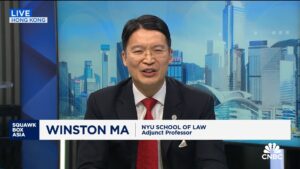
Hong Kong-based marketing expert Ashley Dudarenok looks at China’s second-richest woman, according to the 2025 Hurun rich list. “Zhou’s story rebukes the notion that success is the product of privilege or pedigree. She is living proof that it is possible to rise from the depths of poverty to the highest echelons of wealth and influence,” writes Ashley Dudarenok at the Jing Daily.
Jing Daily:
In the pantheon of Chinese billionaires, there are tech titans, real estate moguls, and brand builders. And then there is Zhou Qunfei, a woman whose story is so raw, so improbable, it feels like a modern-day fairytale. The 55-year-old founder of Lens Technology is the second richest woman in China, with a staggering US$15 billion (110 billion RMB) fortune, according to the 2025 Hurun Rich List.
Her wealth surged 75% ($6.8 billion) from 2024 to 2025 following Lens Technology’s Hong Kong IPO in July 2025. But what makes her story truly remarkable is not merely her wealth but her ability to build a global empire from the ground up. Her journey demonstrates how foresight, relentless discipline, and hands-on leadership can turn a small workshop into an international industry powerhouse…
Zhou’s story rebukes the notion that success is the product of privilege or pedigree. She is living proof that it is possible to rise from the depths of poverty to the highest echelons of wealth and influence. Her empire was not built on a single brilliant idea or disruptive technology, but on the simple, unglamorous work of making things, perfecting a craft, and an unwavering refusal to give up.
She is the “touchscreen queen,” a true industry titan forged in the fires of adversity. She offers a powerful reminder that in the end, the most valuable asset a leader can possess is not a brilliant mind or a charismatic personality but an unbreakable spirit.
Ashley Dudarenok is a speaker at the China Speaker Bureau. Do you need her at your meeting or conference? Do get in touch or fill in our speakers’ request form.
Are you looking for more innovation experts at the China Speakers Bureau? Do check out this list.









